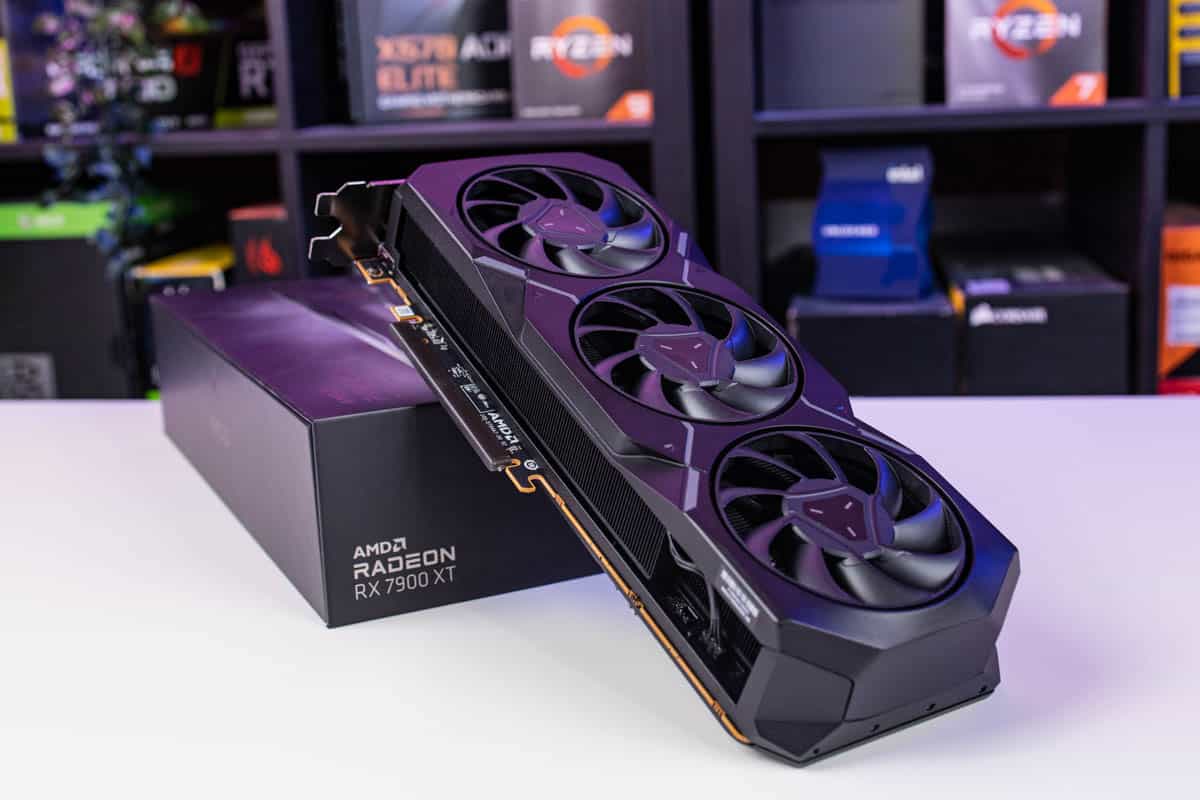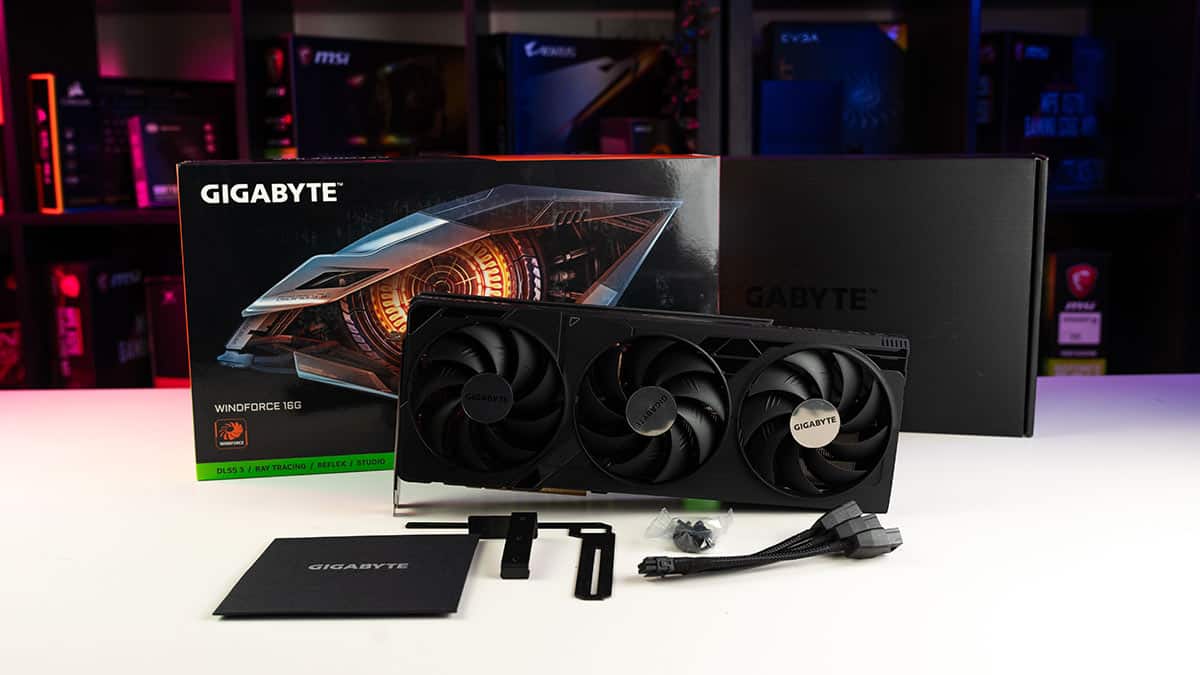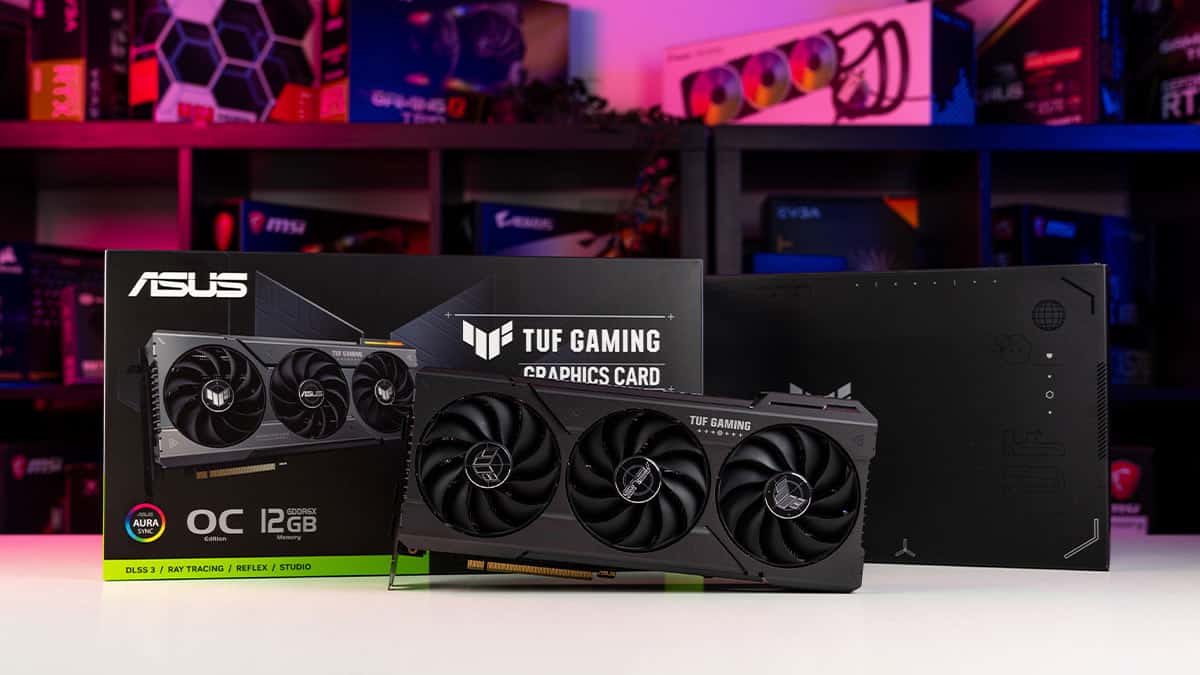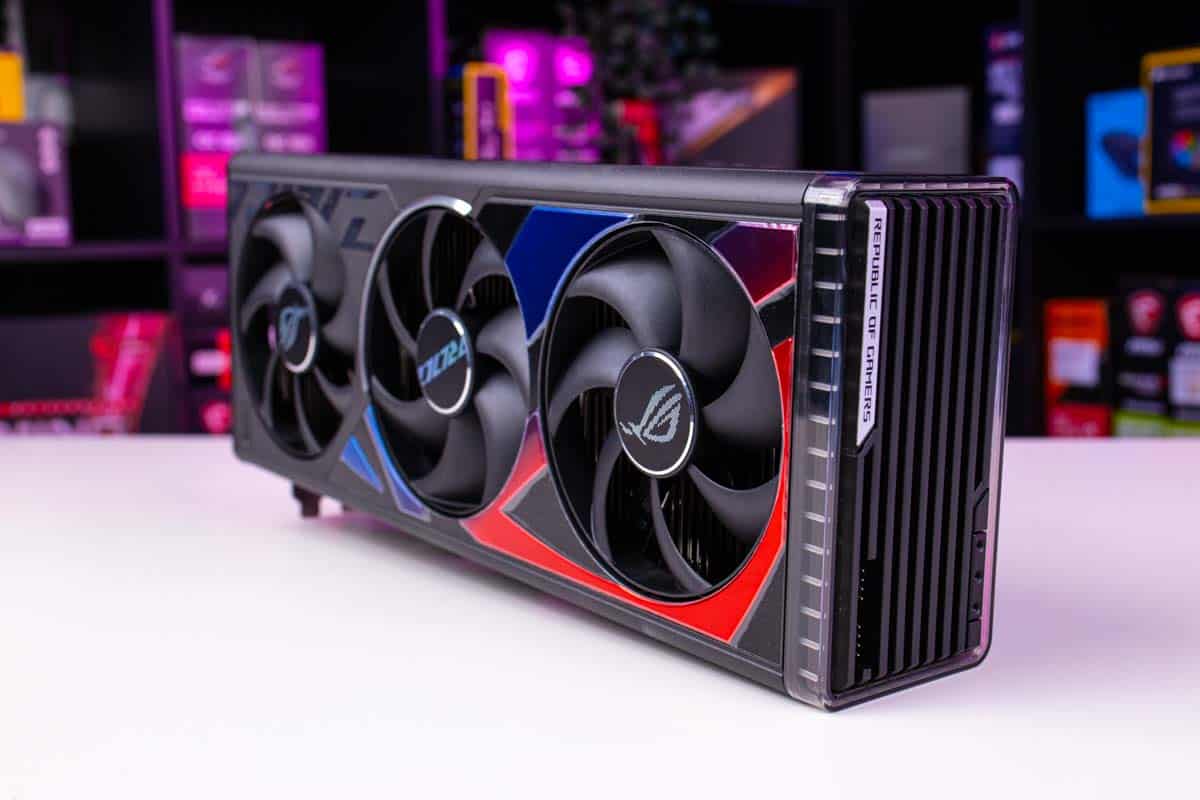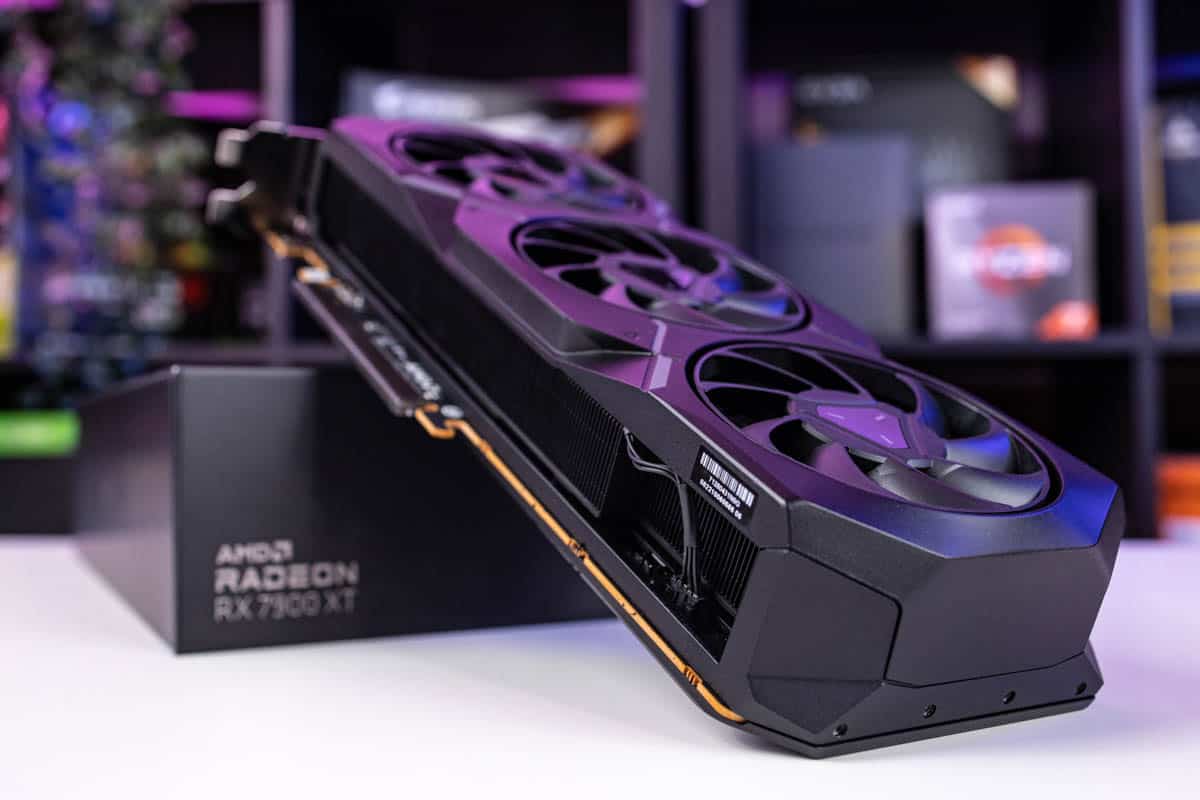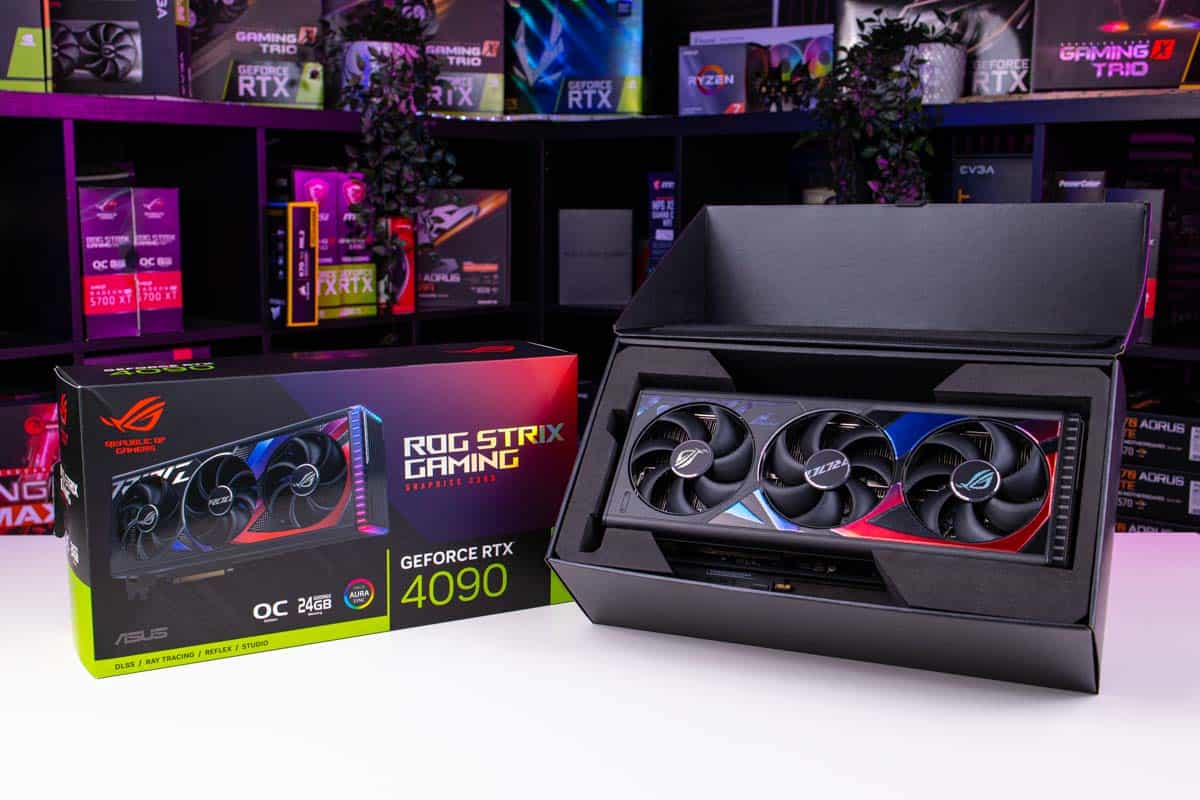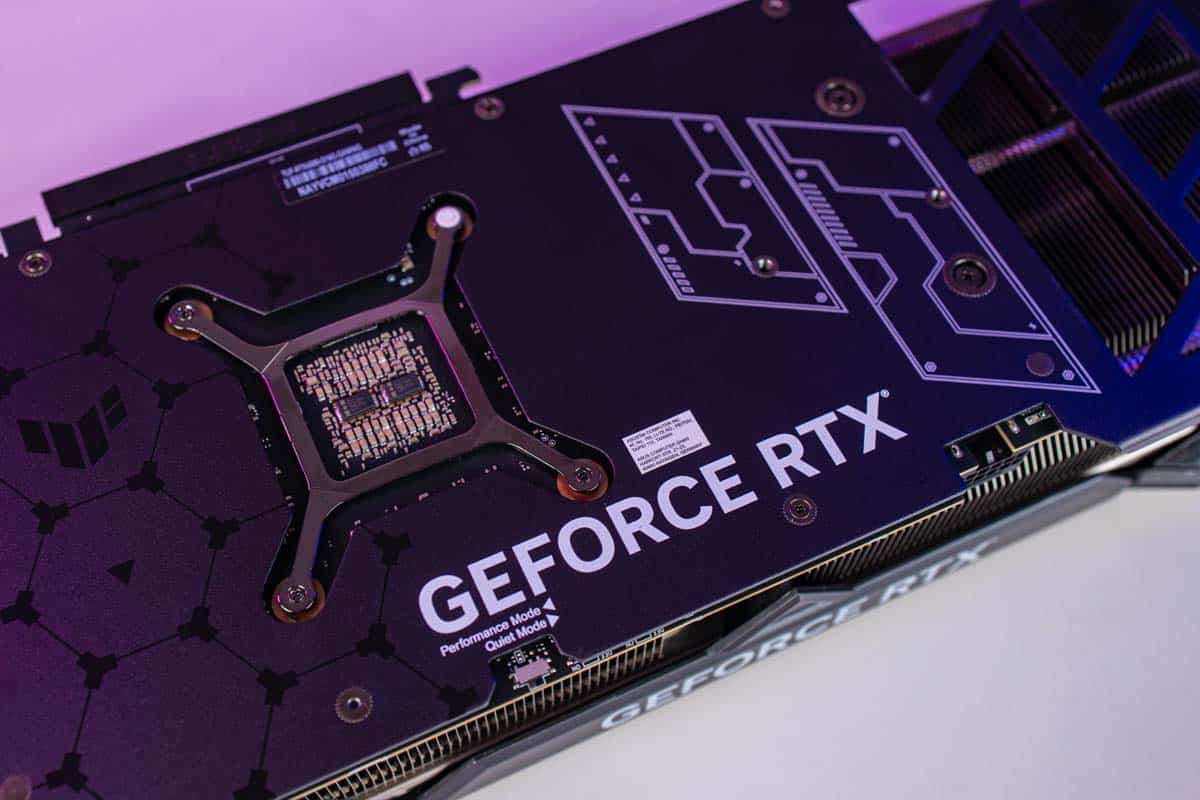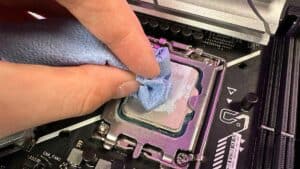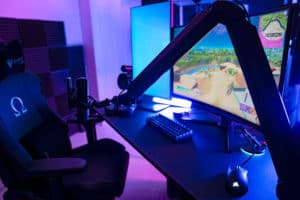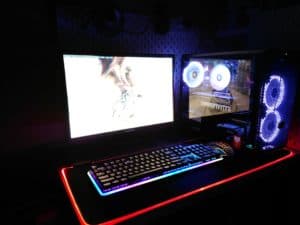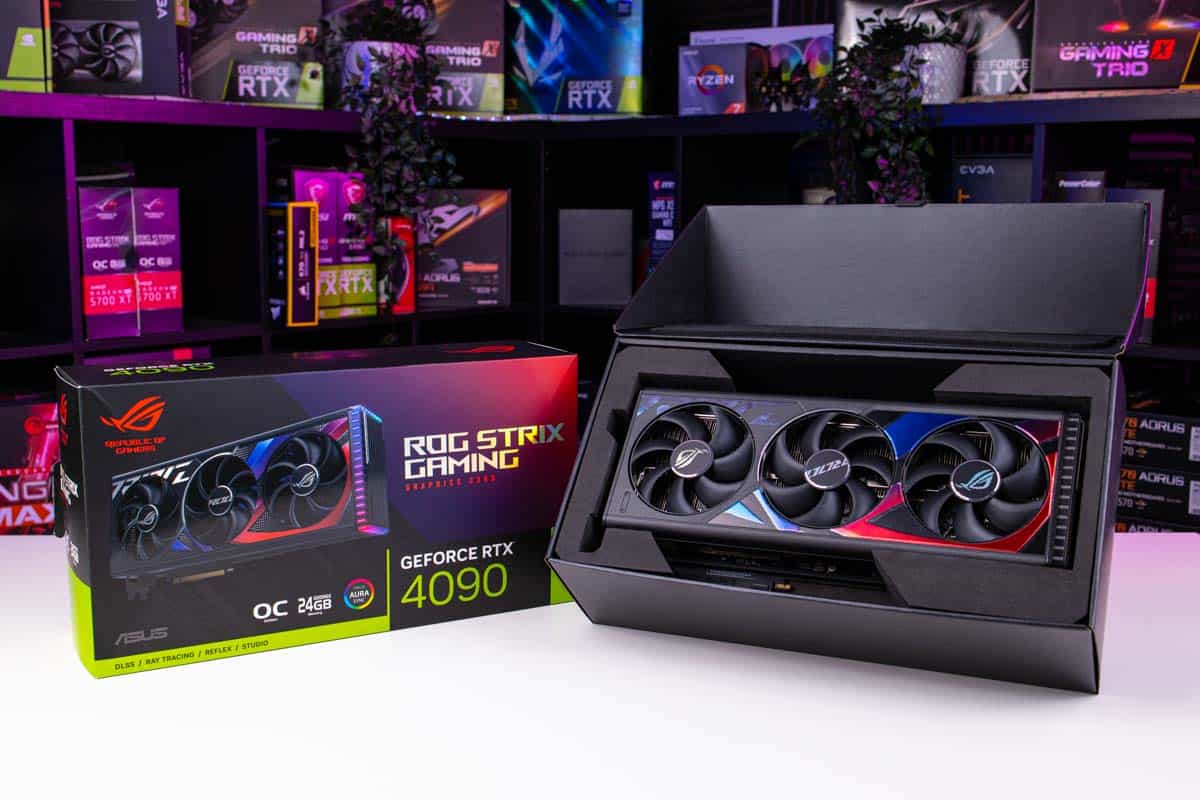
How we test GPUs
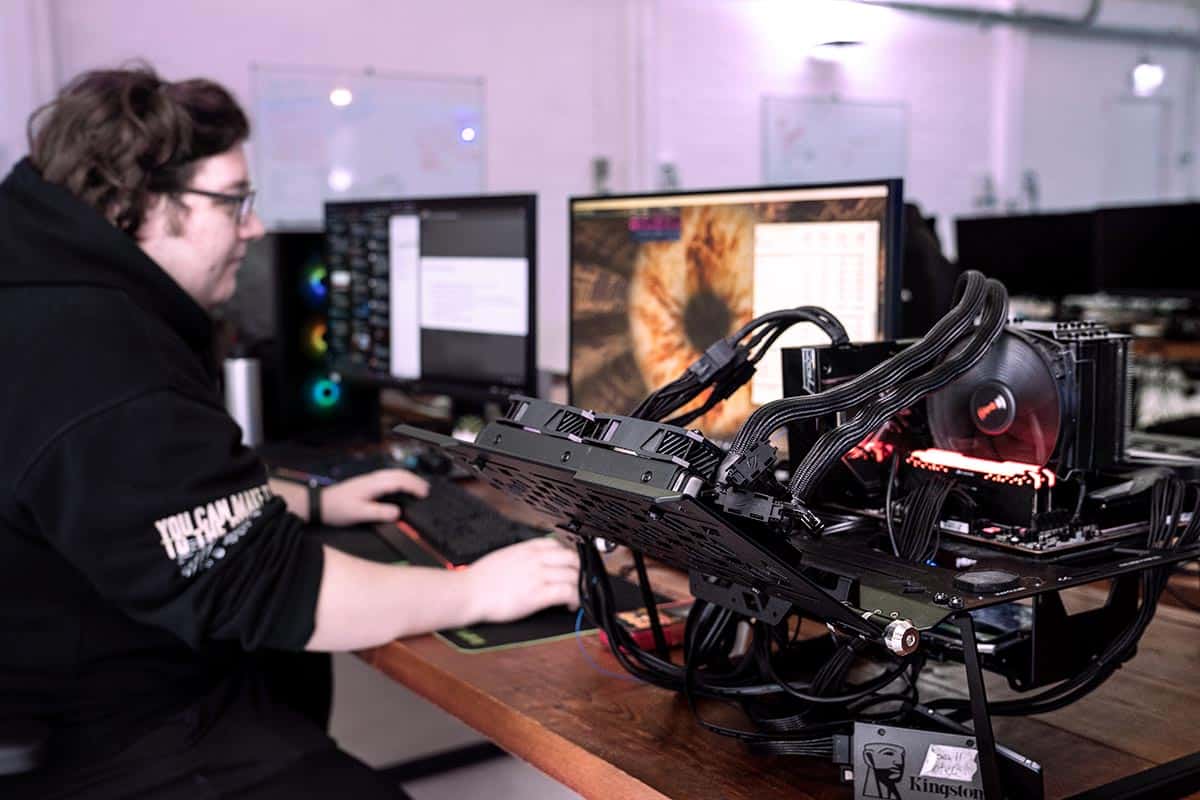
WePC is reader-supported. When you buy through links on our site, we may earn an affiliate commission. Prices subject to change. Learn more
The GPU is at the heart of every gaming PC and if you’re a hardcore dedicated PC gamer it’s likely to be the single most expensive component you purchase. That’s why we put every GPU through rigorous real-world and synthetic tests so we can directly compare and rate each one accurately and against direct competition. Standardized and repeatable testing is critical to get accurate, comparative results.
Our test setup consists of the following:
RTX 5070 Ti launches today!
Nvidia’s latest Blackwell GPU is set to go live today, below are the latest listings from the biggest retailers.
- GIGABYTE GeForce RTX 5070 Ti AERO OC
- ASUS TUF Gaming GeForce RTX ™ 5070 Ti
- GIGABYTE GeForce RTX 5070 Ti Gaming OC
- GIGABYTE AORUS GeForce RTX 5070 Ti Master
- YEYIAN Gaming PC Ryzen 7 9800X3D 5.2 GHz, RTX 5070 Ti
Prices and savings subject to change. Click through to get the current prices.
- Ryzen 9 7950X CPU
- ROG X670E Hero motherboard
- Phanteks 1000W PSU
- Corsair Dominator Titanium 64GB 6600
- ROG Ryujin II 360 AIO CPU cooler
Real-world tests
Aesthetics
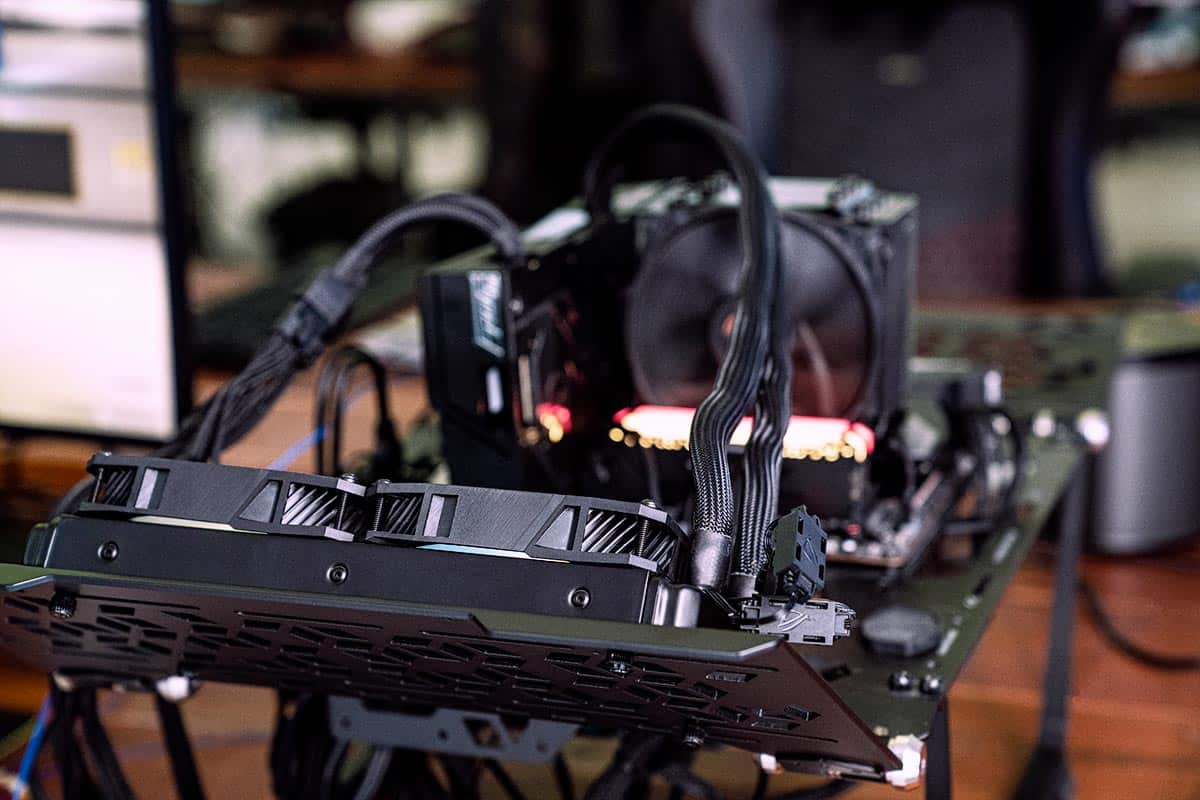
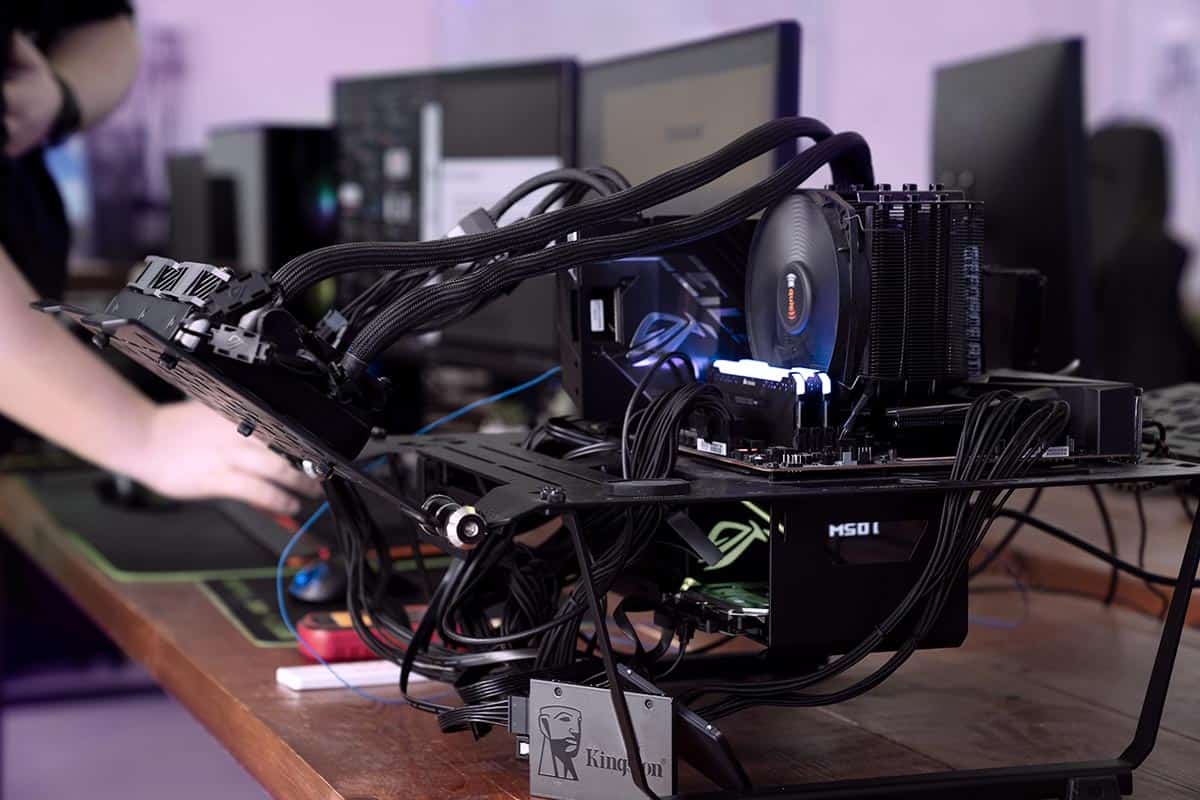
We look at everything from the product and packaging, to any special features on the card (such as an LED display, amount of fans, any extra stuff bundled in). We check the dimensions, feel, and weight of the card, and what materials it’s made from.
Gaming Performance
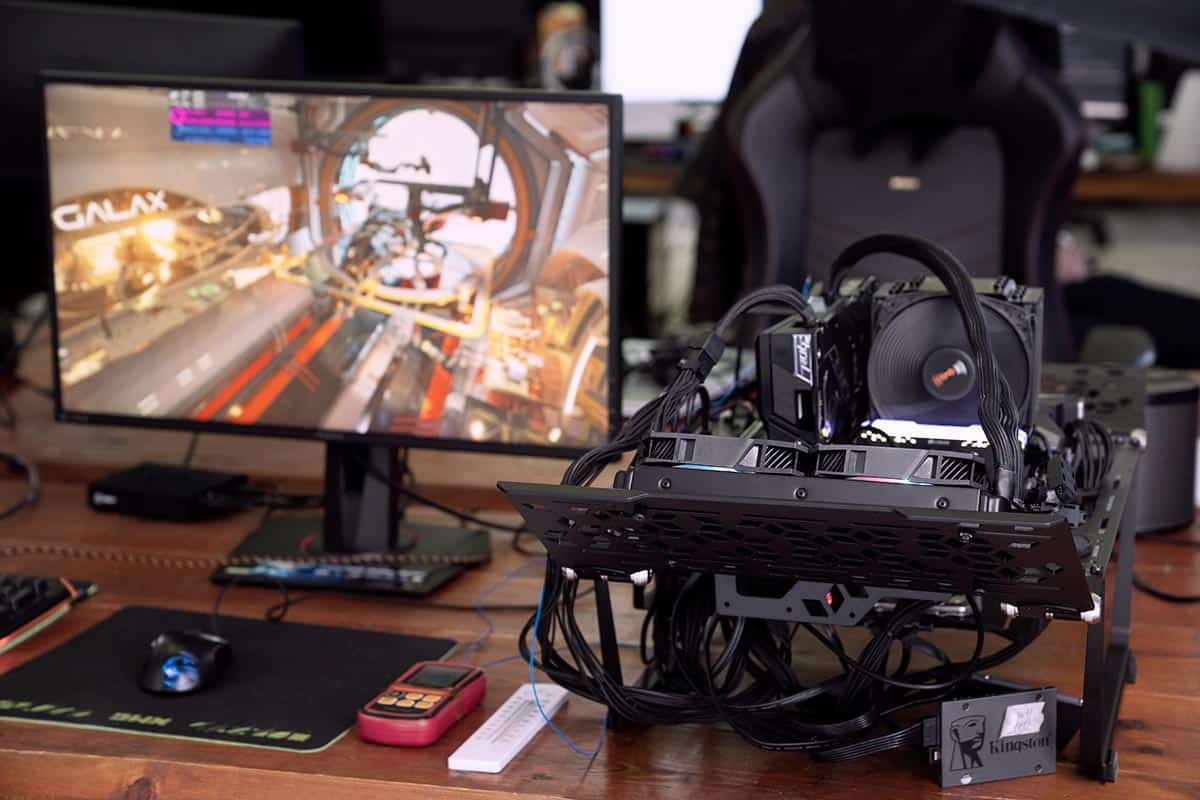
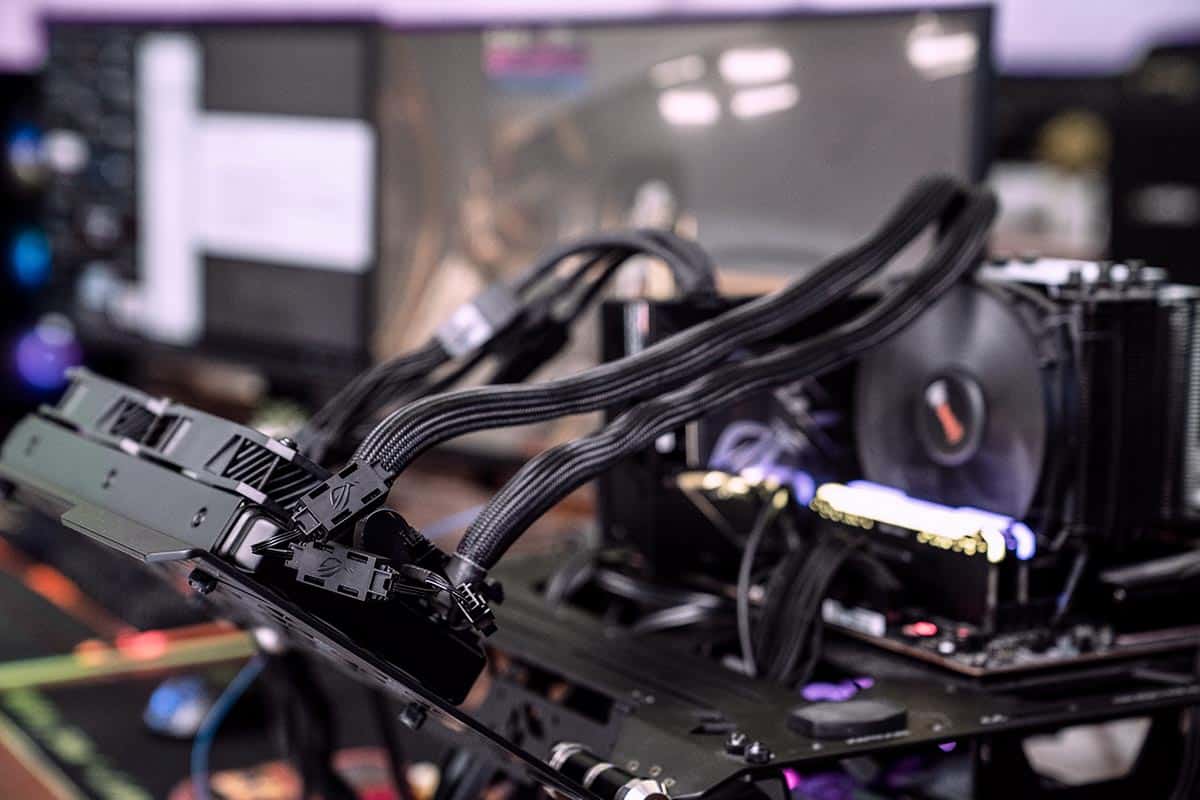
We test each GPU with the following standardized set of games so we can rate the GPU in context. We test each game at 1080p, 1440p, and 4k, and we repeat testing on each resolution three times. These are usually done at the highest settings. We also test ray tracing performance on games if available. Our gaming repertoire:
- Assassin’s Creed Mirage
- Avatar Frontiers of Pandora
- Counter-Strike 2
- CyberPunk 2077
- Doom Eternal
- F1 2023
- Rainbow Six Siege
- Shadow of the Tomb Raider
- The Finals
Synthetic tests
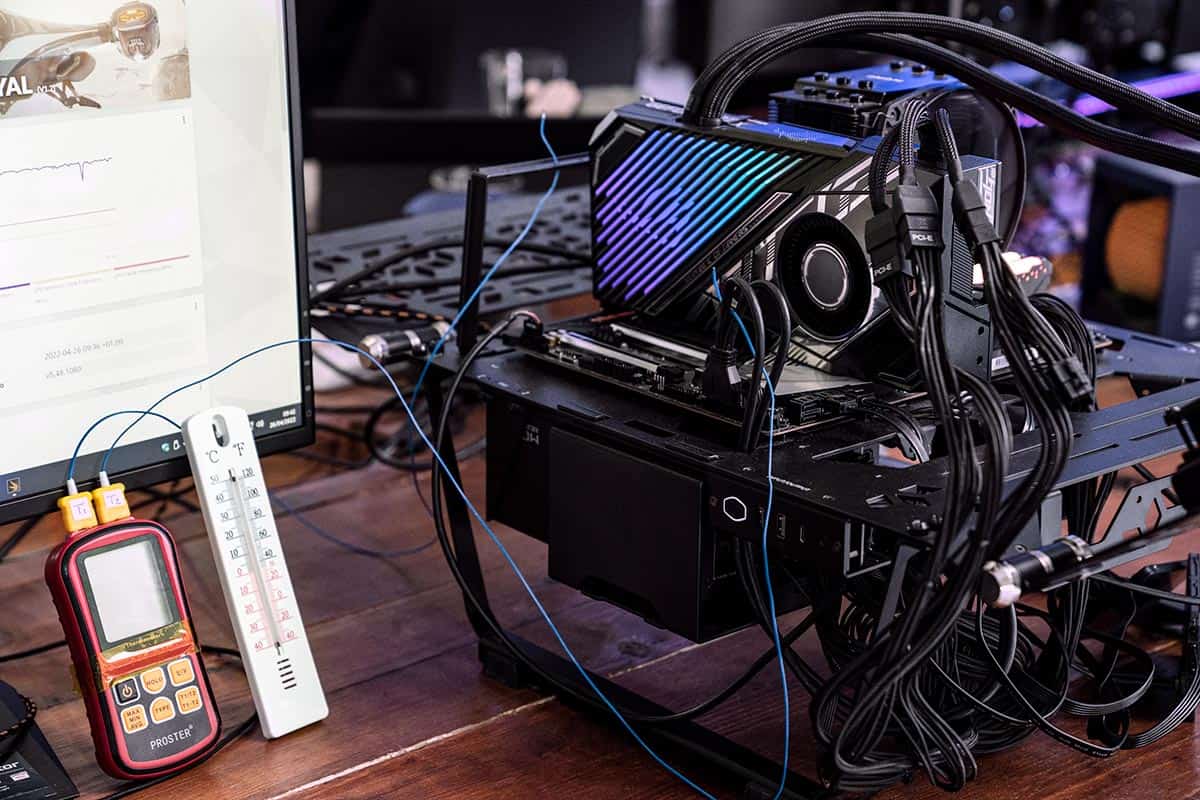
We test the performance of GPUs in non-gaming programs, such as 3D rendering (Blender/SolidWorks) and video rendering (Premiere Pro), and we also use the 3DMark benchmark test.
Power tests
We test the power draw of the GPU using HWInfo to check the power draw reported, but also in general for the system by being plugged into a power plug in the socket.
Thermal and cooling tests

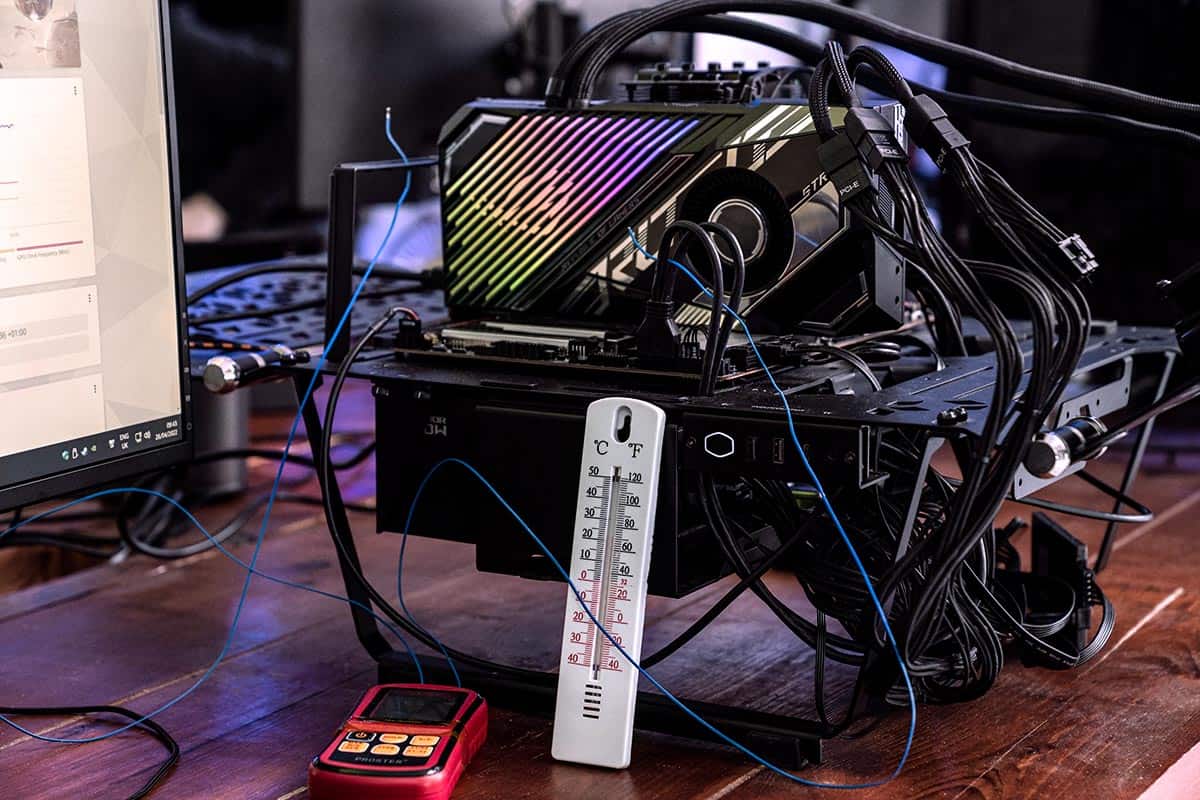

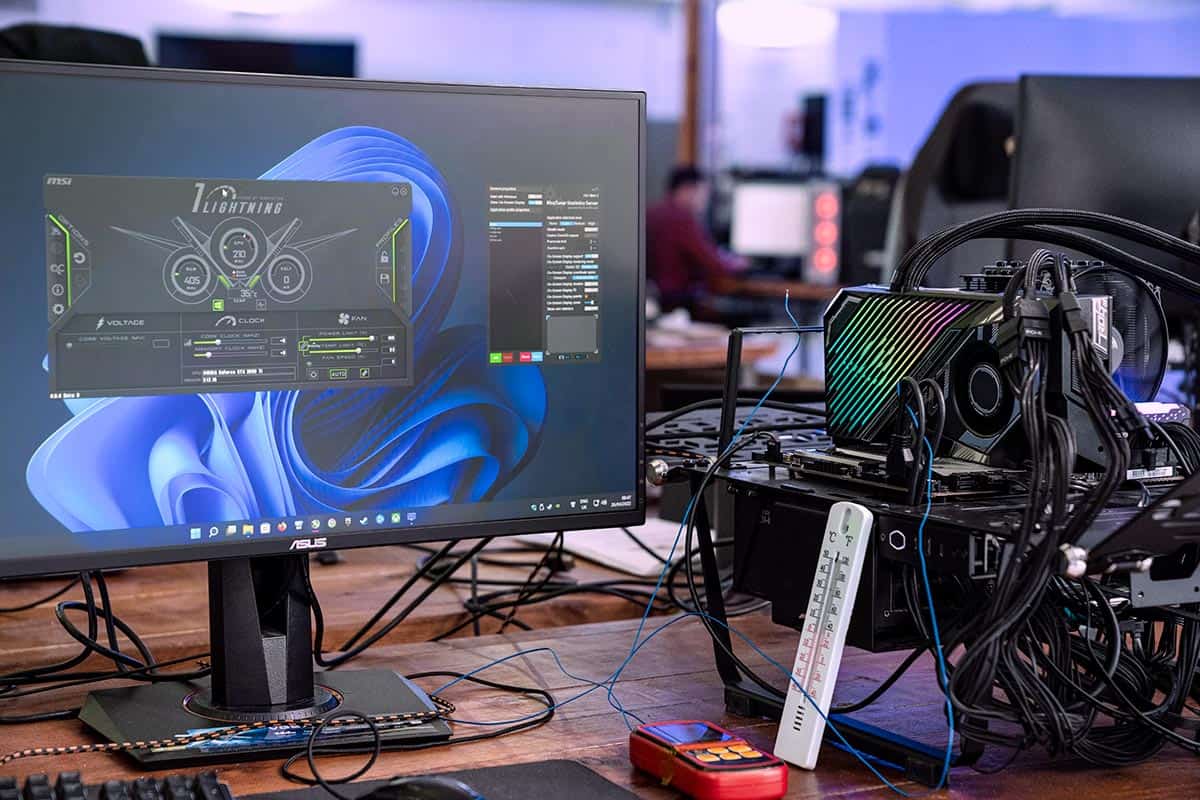
- We take sensor readings over a period of load to check how the die is cooled under load.
- We check how good the cooling solution is and also how loud it is.
- Thermal testing is done in a controlled environment, with a thermal probe to gauge temperatures around the GPU.
- We check fan RPM to see how the fans react under load.
How we score
We score GPUs out of 5 stars with the following weightings.
Gaming (60%)
A key feature of any graphics card is how well it does in running the games you need. There is the raw performance of a card and how many FPS it will get in a game. But there are also extra features it supports such as ray tracing or upscaling software.
Synthetic (15%)
Synthetic benchmarks aren’t always a direct dictator of performance but they give a good idea of relative performance. They give a good comparison between different cards so we can see the difference between multiple cards easily. As well as being smaller and more consistent than some gaming benchmarks they can provide a good overview of a graphics card.
Value for money (MSRP) (10%)
When not looking for the top-of-the-range, value for money is a big consideration. We compare how well the GPU does for how much it costs with the manufacturer’s intended retail price.
Power (5%)
Another consideration when you value money is power consumption. With high usage, your bills will be higher, so it’s good to know what to expect. And if the power is worth the money or if the alternative is a better option.
Thermals (5%)
To keep working at its maximum potential a graphics card needs great cooling to stop it from throttling. So we evaluate how well each cooling solution is and if it holds up to the task when under heavy loads.
Aesthetics (5%)
Sometimes you want to show off your expensive card so how it looks can be an important factor. Taking a look at how it’s built, the quality of materials, and what features come with it can be some key takeaways for some consumers.
GPU test team

Sebastian Kozłowski takes the reigns of running the GPU specialist role. With plenty of years of experience as a gamer, he also has a passion for taking things apart and seeing how they tick. Previously benchmarking and building hardware since 2021 he makes sure the GPUs live up to his lofty expectations.
Recent GPU reviews
WePC guides to buying the best GPU
It’s not easy getting your hands on a GPU these days and while the shortage continues the prices are still sky-high. For that reason, it’s essential that you get the most bang for your buck that’s possible. We put every GPU we get through rigorous, standardized, and repeatable tests to give you the ultimate confidence when buying. If you’re looking for the best GPU for gaming that money can buy you should check out our selection of the best graphics cards. Or if you’re looking for cheaper cards we have a selection of budget cards or low profile cards.
📌 Learn more
If you want to be an expert on GPUs, we’ve got all the information you need. If you’re not sure what a GPU even is, we’ve got a simple explanation. We can also explain why they’re so hard to get hold of and why are they so expensive? If you’re lucky enough to already have one make sure it’s working as it should with some GPU stress tests. Or get even more out of it with the help of our simple overclocking guide.

